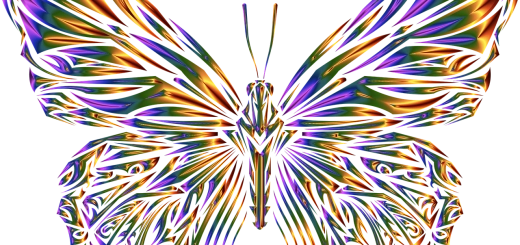Gnosticism and the Role of Sophia

Looking for more amazing products? Check out our online store and explore our collection here! Happy shopping!
Before diving in, please note: This post is for informational purposes only. If you’d like to know more about how we approach topics, feel free to check out our friendly Disclaimer Page.
Hey there, amazing readers! 
We’re committed to delivering quality posts, and your support (even just sticking around despite the ads) means everything to us. So, bear with us, and thanks for helping us keep the good vibes rolling. Now, on to the fun stuff!
TRANSLATE BUTTON AT THE END OF THE ARTICLE
A Quick Overview
Gnosticism, an ancient religious movement that emerged in the early centuries of the Common Era, offers a unique perspective on spirituality, knowledge, and the divine.
At the core of Gnostic beliefs is the idea that salvation comes through gnosis, or direct experiential knowledge of the divine.
One key figure in Gnostic thought is Sophia, the embodiment of divine wisdom.
Sophia plays a crucial role in the creation of the material world and serves as a guide to enlightenment for Gnostic practitioners.
In this article, we will explore the concept of Sophia in Gnosticism, her historical roots, her role in creation, and her influence on Gnostic beliefs and practices.
Understanding Gnosticism
Gnosticism is a diverse set of spiritual beliefs and practices that originated in the first few centuries of the Common Era.
Gnostics believed that salvation came through a secret knowledge or gnosis that transcended the material world.
They viewed the material world as flawed or even malevolent and sought to escape its influence through spiritual enlightenment.
Gnostic texts often presented a cosmology in which a transcendent, unknowable God created lesser divine beings, including Sophia, who played a role in the creation of the material world.
The Concept of Sophia in Gnosticism
In Gnostic thought, Sophia represents divine wisdom and is often seen as a bridge between the transcendent God and the material world.
She is sometimes portrayed as a fallen or wayward deity who becomes trapped in the material realm.
Despite this, Sophia retains her divine nature and continues to guide seekers towards spiritual enlightenment.
Gnostics saw Sophia as a powerful and benevolent force that could help them navigate the complexities of the material world and lead them towards a deeper understanding of the divine.
Historical Roots of Gnosticism
The roots of Gnosticism can be traced back to ancient Greek philosophy, Jewish mysticism, and Christian teachings.
Gnostic ideas were influenced by a wide range of religious and philosophical traditions, including Platonism, Hermeticism, and the mystery religions of the ancient world.
Gnosticism flourished in the first few centuries of the Common Era, with various Gnostic sects emerging throughout the Roman Empire.
Despite being considered heretical by many orthodox Christian groups, Gnosticism persisted and continued to influence Western spirituality for centuries.
Sophia as Divine Wisdom
In Gnostic thought, Sophia is often equated with divine wisdom, understanding, and knowledge.
She is seen as a cosmic force that underpins the creation of the material world and guides seekers towards spiritual enlightenment.
Sophia is sometimes depicted as a maternal figure, offering comfort, guidance, and protection to those who seek her wisdom.
Gnostics believed that through gnosis of Sophia, they could transcend the limitations of the material world and achieve spiritual liberation.
The Role of Sophia in Creation
According to Gnostic cosmology, Sophia played a crucial role in the creation of the material world.
In some Gnostic texts, Sophia is described as emanating from the divine Pleroma, or fullness, and giving birth to the Demiurge, the creator of the material world.
However, Sophia’s act of creation was flawed, resulting in the imperfect and chaotic nature of the material realm.
Despite this, Gnostics believed that Sophia’s divine spark remained within the material world, offering a path to spiritual redemption for those who sought her wisdom.
Sophia as a Guide to Enlightenment
For Gnostics, Sophia served as a guide to enlightenment, leading seekers towards a deeper understanding of the divine and the true nature of reality.
Through gnosis of Sophia, practitioners could transcend the limitations of the material world and achieve spiritual liberation.
Sophia was seen as a compassionate and loving figure, offering solace and wisdom to those who sought her guidance.
Gnostics believed that through a direct personal relationship with Sophia, they could uncover the hidden truths of the universe and achieve spiritual enlightenment.
Gnostic Texts Featuring Sophia
Several ancient Gnostic texts feature Sophia as a central figure, including the Apocryphon of John, The Thunder, Perfect Mind, and the Pistis Sophia.
These texts depict Sophia as a powerful and enigmatic deity who plays a crucial role in the creation of the world and the redemption of humanity.
The Apocryphon of John, for example, presents Sophia as a divine being who emanates from the Pleroma and gives birth to the Demiurge.
The Pistis Sophia recounts the teachings of Jesus to his disciples, including insights into the nature of Sophia and her role in guiding seekers towards enlightenment.
Sophia in Relation to Other Deities
In Gnostic cosmology, Sophia is often associated with other divine beings, including the Demiurge, the Archons, and the Aeons.
The Demiurge is the creator of the material world, while the Archons are malevolent beings who seek to keep humanity trapped in ignorance and suffering.
The Aeons are divine emanations from the Pleroma who embody various aspects of the divine nature.
Sophia is often depicted as the youngest and most rebellious of the Aeons, embodying both the wisdom and the folly of the divine.
Interpretations of Sophia in Gnostic Traditions
Different Gnostic sects had varying interpretations of Sophia and her role in the universe.
Some saw her as a fallen or wayward deity who became trapped in the material world, while others viewed her as a benevolent guide and teacher who offered wisdom and enlightenment to seekers.
Despite these differences, Sophia was generally seen as a positive and powerful force within Gnostic cosmology, leading practitioners towards spiritual liberation and enlightenment.
The diversity of interpretations of Sophia reflects the rich complexity of Gnostic thought and the varied influences that shaped it.
Influence of Sophia on Gnostic Beliefs
Sophia’s influence on Gnostic beliefs was profound, shaping the cosmology, theology, and practices of various Gnostic sects.
Gnostics saw Sophia as a key figure in the creation of the material world and a guide to spiritual enlightenment.
Her role as a bridge between the divine and the material world was central to Gnostic teachings, offering practitioners a path to transcend the limitations of the material realm and achieve spiritual liberation.
Through gnosis of Sophia, Gnostics believed they could uncover the hidden truths of the universe and achieve a direct personal relationship with the divine.
Contemporary Views on Sophia in Gnosticism
While Gnosticism as a historical movement largely faded from prominence, interest in its teachings and beliefs continues to this day.
Contemporary spiritual seekers often draw inspiration from Gnostic texts and ideas, including the figure of Sophia.
In modern interpretations of Gnosticism, Sophia is seen as a symbol of divine wisdom, compassion, and enlightenment.
Her role as a guide to spiritual liberation resonates with those seeking a deeper understanding of the divine and a path to transcend the limitations of the material world.
Importance of Sophia in Modern Spiritual Practices
Sophia’s enduring influence on Gnostic beliefs continues to inspire modern spiritual practices and traditions.
For many contemporary seekers, Sophia represents the embodiment of divine wisdom and the potential for spiritual growth and enlightenment.
Her role as a guide and teacher offers solace, guidance, and inspiration to those navigating the complexities of the modern world.
By connecting with Sophia through meditation, prayer, and contemplation, practitioners can access her wisdom and compassion, leading them towards a deeper understanding of themselves and the divine.
Conclusion
In conclusion, the role of Sophia in Gnosticism is central to understanding the spiritual beliefs and practices of this ancient movement.
As the embodiment of divine wisdom, Sophia serves as a guide to enlightenment, offering seekers a path to spiritual liberation and the uncovering of hidden truths.
Her influence on Gnostic cosmology, theology, and practices continues to resonate with contemporary spiritual seekers, who draw inspiration from her teachings and her role as a bridge between the divine and the material world.
Through a deeper exploration of Sophia and her place in Gnostic thought, we can gain valuable insights into the nature of the divine, the complexities of the material realm, and the potential for spiritual growth and enlightenment.

The Enlightenment Journey is a remarkable collection of writings authored by a distinguished group of experts in the fields of spirituality, new age, and esoteric knowledge.
This anthology features a diverse assembly of well-experienced authors who bring their profound insights and credible perspectives to the forefront.
Each contributor possesses a wealth of knowledge and wisdom, making them authorities in their respective domains.
Together, they offer readers a transformative journey into the realms of spiritual growth, self-discovery, and esoteric enlightenment.
The Enlightenment Journey is a testament to the collective expertise of these luminaries, providing readers with a rich tapestry of ideas and information to illuminate their spiritual path.
Our Diverse Expertise
While our primary focus is on spirituality and esotericism, we are equally passionate about exploring a wide range of other topics and niches 

To ensure we provide the most accurate and valuable insights, we collaborate with trusted experts in their respective domains 
Our blog originally focused on spirituality and metaphysics, but we’ve since expanded to cover a wide range of niches. Don’t worry—we continue to publish a lot of articles on spirituality! Frequently visit our blog to explore our diverse content and stay tuned for more insightful reads.
Hey there, amazing reader! 
Check out our store here and take a peek at some of our featured products below! Thanks for being awesome!











